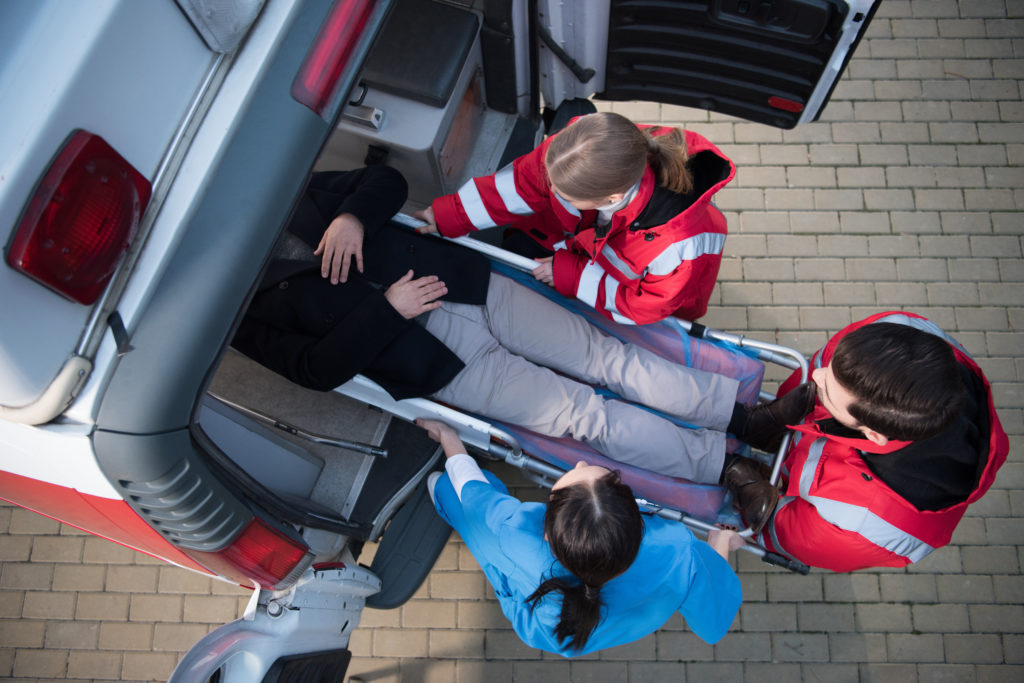
Blog
Who is Liable for a Car Accident Caused by a Sudden Medical Emergency?

When a driver violates a traffic law or makes a driving error and causes a car crash, that driver will be considered negligent and held liable for the victim’s injuries and damages.
However, what if a car accident is caused by a driver who suffers a sudden medical emergency? What if a driver lost control of the vehicle because they had a heart attack, stroke, or seizure?
The answer is not immediately obvious in many cases, which is why it’s advised to consult with an experienced injury lawyer to determine who is responsible in your particular situation. Contact our Daytona Beach personal injury attorney at Rick Kolodinsky, P.A., if you or the other driver involved in the accident suffered a sudden medical emergency that resulted in injuries.
Is the driver who suffered the medical emergency responsible for the accident?
The person who causes a car accident may not be held liable for the crash if they suffered a sudden and unforeseeable medical emergency before the crash. Whether or not the driver who had a medical event is responsible for causing the accident depends on:
- When the medical emergency occurred (before, during, or after the collision);
- Whether the medical emergency was foreseeable; and
- The specific circumstances of the crash.
Usually, the driver will lose control of their vehicle when they suffer an unforeseeable medical emergency while driving. A driver’s ability to use the “sudden medical emergency” defense to avoid accident liability varies from state to state.
In Florida, a driver can be responsible for a car accident caused by a medical emergency if the emergency condition was reasonably foreseeable due to an illness or medical condition prior to the collision.
Also, it’s important to determine whether the medical event occurred before or because of the crash. For example, if the driver suffered a blackout before the collision and the medical emergency was not foreseeable, the driver may not be at fault for causing the crash.
However, if the driver fainted as a result of the impact, they may be held liable for the accident if they were negligent in causing the collision.
In Florida, individuals with a seizure disorder or epilepsy are not allowed to operate a vehicle unless their seizures are well-managed and other requirements are met. According to a State Driving Laws database, “A person with epilepsy may be licensed to drive after a seizure free period of two years before their license is reinstated or issued.”
Thus, if a driver was not allowed to operate a vehicle because of the risk of seizure, they may be held liable for the crash if they chose to drive and caused a collision while having a seizure.
Options for recovering compensation for a Florida car accident
Establishing fault for vehicle crashes caused by seizures, strokes, and other sudden medical emergencies may not be necessary in a no-fault state such as Florida. Under Section 627.7407, Florida Statutes, injured victims can recover damages after a car accident regardless of who was at fault. This can be done by filing a claim with your own insurance company’s PIP coverage policy.
In other words, each party is responsible for their own damages in minor Florida car crashes. However, if the victim suffered a serious injury or if they exhaust their Personal Injury Protection (PIP) coverage, they have two more options:
- Pursue a third-party claim against the at-fault driver’s insurance company; or
- File a personal injury lawsuit against the at-fault party.
But again, the success of a personal injury lawsuit against the other driver depends on whether their medical event was reasonably foreseeable or not. In order words, to be deemed at fault, the other driver must have been aware of the risk of a sudden medical emergency.
A driver who suffered a medical emergency would not be responsible for a resulting car accident if they successfully claim a sudden emergency defense as provided under the Sudden Emergency Doctrine in Florida.
In order to use this legal defense, the driver must prove the following elements:
- The driver suffered an unforeseeable medical emergency while driving;
- The medical emergency was not caused by the driver’s actions or lack of action; and
- The driver acted as any person of reasonable prudence would in a similar situation.
At the end of the day, it’s up to the Florida judge or jury to decide whether the other driver can use the “sudden medical emergency defense” after causing a car accident that resulted in injuries. Whether or not the defense is applicable depends on the facts of each particular case.
Given the complexity of these cases, it’s advised to consult with an experienced personal injury attorney to determine liability for the injuries resulting from a car accident that may have been caused by a sudden medical emergency. Contact our Daytona Beach injury lawyer at Rick Kolodinsky, P.A. today to help you navigate this unique case. Schedule a free consultation online or give us a call at 386-200-1866.
Categories
Mr. Kolodinsky has been honored by his induction into this prestigious nationwide organization of trial lawyers. Of some 900 lawyers in Volusia Country there are four lawyers so honored.
We don’t sell your information. You can opt out at any time.
